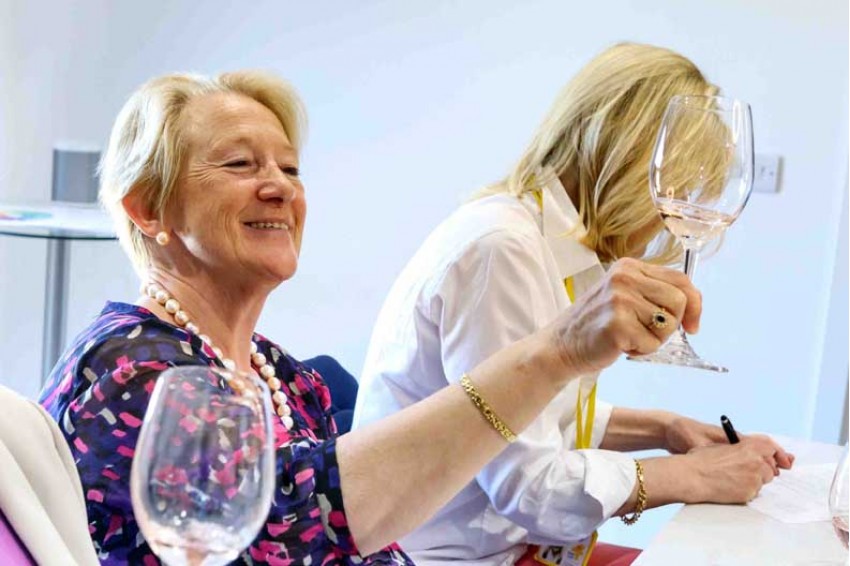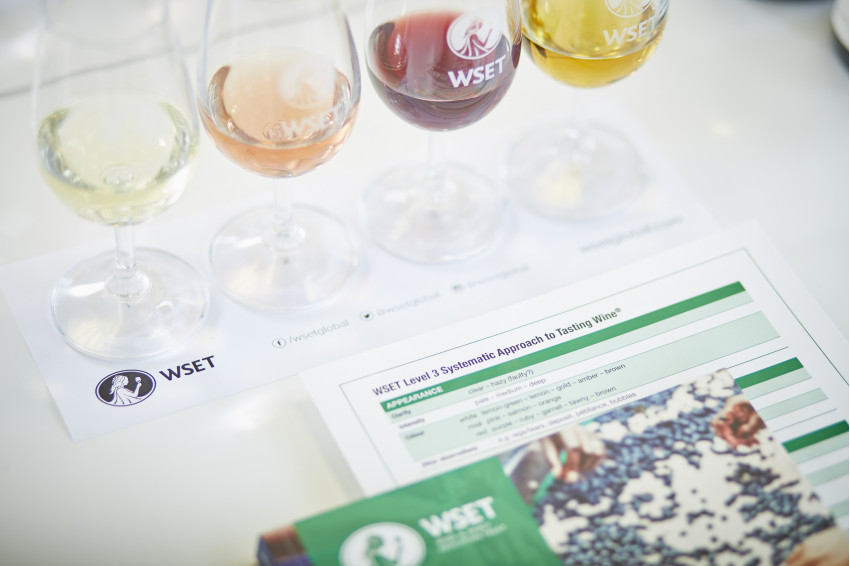Wine tasting is not to be feared! Relax, enjoy it and have some fun.
Forming an opinion as to why you like or don’t like the wine is the first step. Then describe the wine considering the following questions; who would I like to share this wine with? what time of the year would I like to drink it? what food could I enjoy this with? Thinking about all of this will help all your thoughts come together to offer a real sense of the wine and the experience.
Samantha Goodhart, Bon Coeur's MD, gives her top 6 tips for wine tasting and creating the perfect note...
1. Make sure you are somewhere quiet so you can concentrate. Some people prefer a little background music for some good vibes! No television or children required for this…. I always like to taste in a good light, a calm, bright and airy room - my kitchen is best for this.
2. Before you taste, make sure that all the wines are at the correct serving temperature. If you are unsure, read our Guide to Serving Wine at the Right Temperature.
3. Prior to tasting, avoid coffee or any strong flavoured food or drink. You need a clean, neutral palate (mouth to those who are starting out).
4. If you are tasting a few wines, I recommend you put them in order of strength and weight, so lighter, medium and full bodied in that order, with whites, rose and reds to follow. Get yourself a pen and paper so you can write down your thoughts on each wine.
5. You need a clean wine glass (to check, smell it!). Pour the wine into the glass and then swirl it around allowing the wine to come in to contact with the air. Firstly, smell the wine. I know you don’t normally smell wine, however, you can determine an awful lot of information from your nose.
6. Trust your senses:
• What do you see? Investigate the colour of the wine and note down what you see. To properly assess the colour, place your glass of wine over a white piece of paper to reveal its true colour nuances.
• What do you smell? Take in the wine’s aromas. Stick your nose in the glass and breathe in through your nose. Write down your thoughts on the type of fruits, herbs and any floral notes you can smell. Other aromas could include oak, cedar; savoury smells such as toasted nuts, yeast/brioche, spice, vanilla, tobacco, leather, mushrooms… the list is endless! However, trust your instincts.
• What do you taste? Assess the flavours and weight of the wine in your mouth. Through our tongues, we measure taste; is it salty, sour, sweet, or bitter? Which flavours are highlighted upon tasting and are there any other factors? Is it refreshing, zesty, does it offer autumn fruits or is it dark and nocturnal? Finally, what is the body of the wine like? Is it light, medium or full bodied?
• What does it feel like? Does it feel balanced in your mouth from beginning to end? What is the texture like? Is it silky, or does it give a pleasurable vibrancy? What is the length of the wine? i.e. how long does the taste of the wine stay in your mouth after tasting? If it stays with you a long time then it has good length.
• How does it make you feel? We are now into the wine experience side. When would you like to drink this wine - outside alfresco style, or, by the fire relaxing on a winters evening? Who would you like to share this wine with? (Sometimes it’s so good I don’t want to share!) Finally, would you buy it again and recommend it to your friends?
If you wish you can drink some room-temperature water between wines to cleanse your palate. Many experts also find it useful to spit out the wine you have tasted rather than swallowing it. Try it, you may be surprised. I think spitting heightens the senses and allows you to focus more on the wine. It also allows you to taste a few more without your palate being overcome by the effects of alcohol!
One word of advice, which we all sometimes fall foul of, is don’t be influenced by the packaging and labelling, try to form your own opinion. Remember this is not an intellectual challenge, the aim of tasting well is to bring pleasure into your life and if you can write it down as a tasting note, all the better, you are then ready to share your wine experience with others. With more tasting practice, you will start to develop a taste profile of different grapes and wines which will give you more confidence as you progress.






